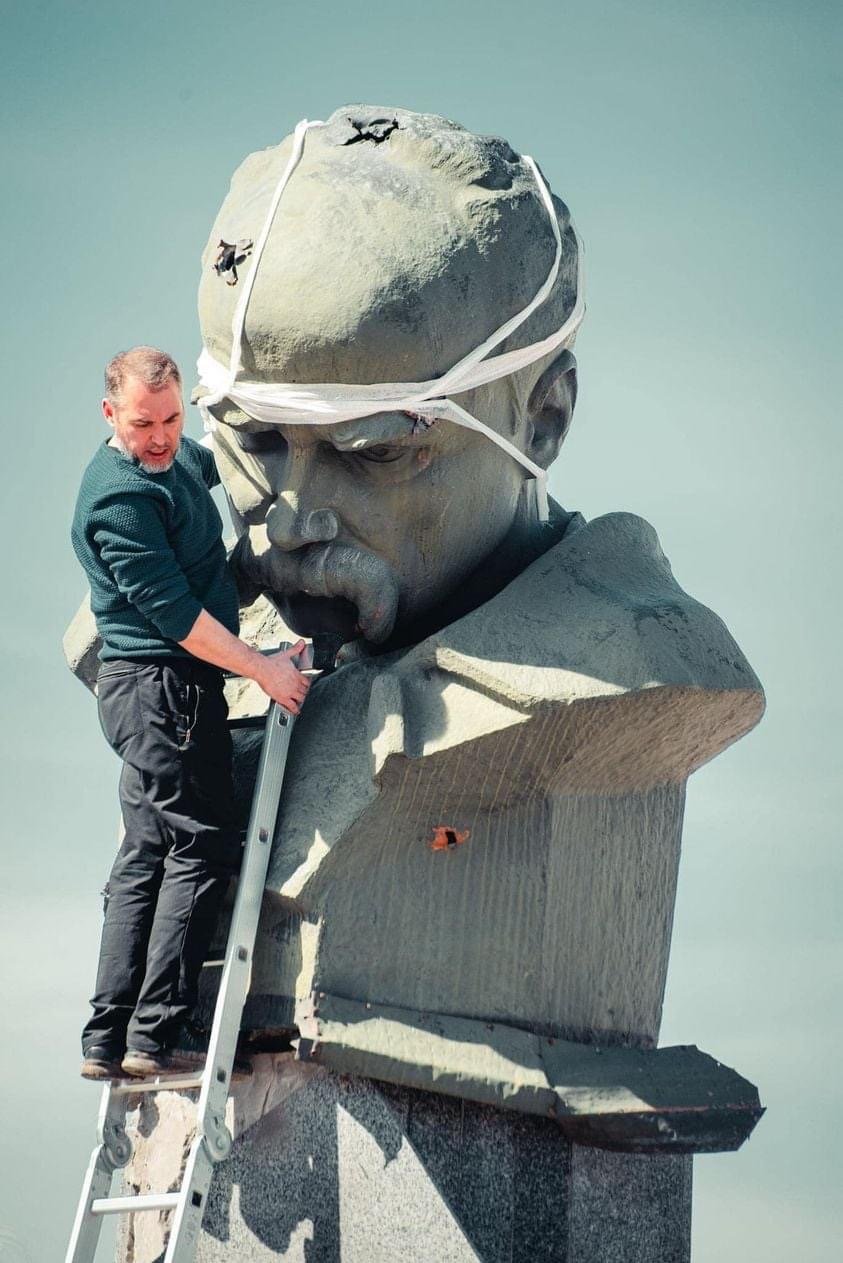Taras Shevchenko. “Pochayiv Monastery from the South.” From the 2014 exhibition featuring Shevchenko’s art in New York City.
Taras Shevchenko born into Tsarist Russia, was a political dissident and an artist. He is the national poet of Ukraine. His first collection of poetry, Kobzar, was published in 1840.
In 1847 Shevchenko was convicted by the Tsarist government for promoting the independence of Ukraine and writing poems in the Ukrainian language, instead of Russian. Shevchenko's poetry contributed to the growth of Ukrainian nationalism.
Ukraine, newly independent since 1991 is keenly aware of the fragility of her new nationhood. Patriotic songs and poetry are most important when you feel that your independence is under attack. Schevchenko inspired the protestors during the Euromaidan Protests in 2013-14. Schevchenko was even referred to by Georgians who suffered from the Russian invasion in 2008.
And, not surprisingly, Schevchenko was important to Ukrainian dissidents during the Soviet Union.
150 years after Schevchenko was imprisoned for his Ukrainian - ness - after the demise of the last Tsar and more lately from the Soviet oppressor - a handful of young Ukrainian students met in our modest apartment in Lutsk, Ukraine. The students gathered for an evening of food and song. Spread out on chairs, beds, and on the floor someone yelled across the room, “Tanya, do that Shevchenko poem, will ya?” Tanya, looked up and smiled.
“Shhhh.”
“Be quiet, she’s going to start….”
The room turned completely still. Tanya slid off the bed, took the pose of the orator. Closing her eyes, she began solemnly,
When I die,
let me rest, let me lie
amidst Ukraine’s broad steppes. Let me see
The endless fields and steep slopes I hold so dear.
Let me hear
the Dnipro’s great roar.
_________________________________________________________________
When I die,
let me rest, let me lie
amidst Ukraine’s broad steppes. Let me see
The endless fields and steep slopes I hold so dear.
Let me hear
the Dnipro’s great roar.
And when the blood
of Ukraine’s foes flows
into the blue waters of the sea, that’s when I’ll forget
the fields and hills
and leave it all
and pray to God.
Until then, I know no God.
So bury me, rise up,
and break your chains.
Water your freedom
with the blood of oppressors.
And then remember me
with gentle whispers
and kind words
In the great family
of the newly free.
Translated by Alexander J. Motyl
Як умру, то поховайте
Мене на могилі,
Серед степу широкого,
На Вкраїні милій,
Щоб лани широкополі,
І Дніпро, і кручі
Було видно, було чути,
Як реве ревучий.
Як понесе з України
У синєє море
Кров ворожу... отоді я
І лани, і гори —
Все покину і полину
До самого Бога
Молитися... а до того
Я не знаю Бога.
Поховайте та вставайте,
Кайдани порвіте
І вражою злою кров'ю
Волю окропіте.
І мене в сiм'ї великій,
В сiм'ї вольній, новій,
Не забудьте пом'янути
Незлим тихим словом.
Taras Shevchenko,
25 December 1845, Pereiaslav
